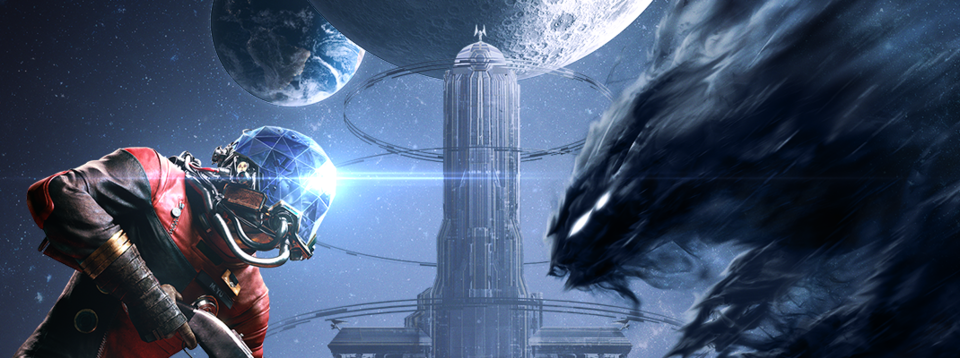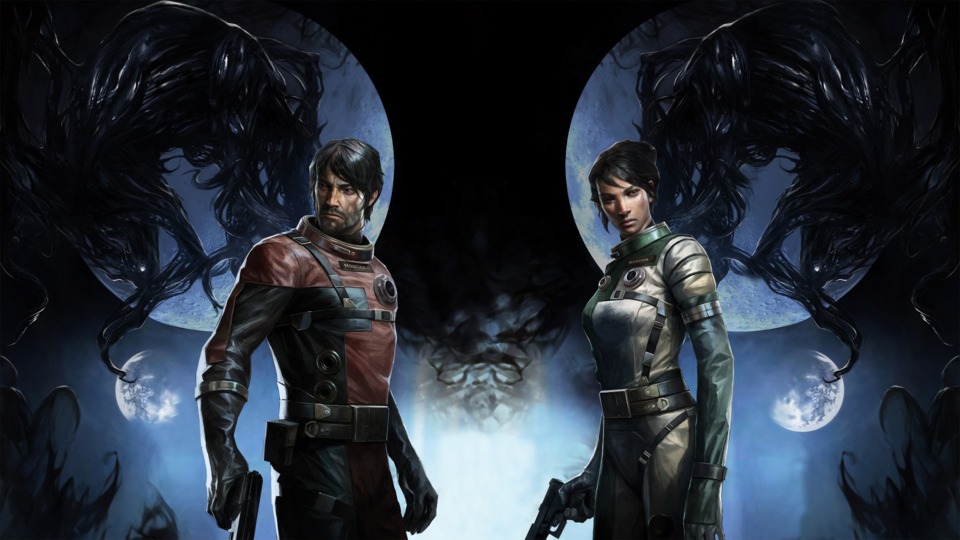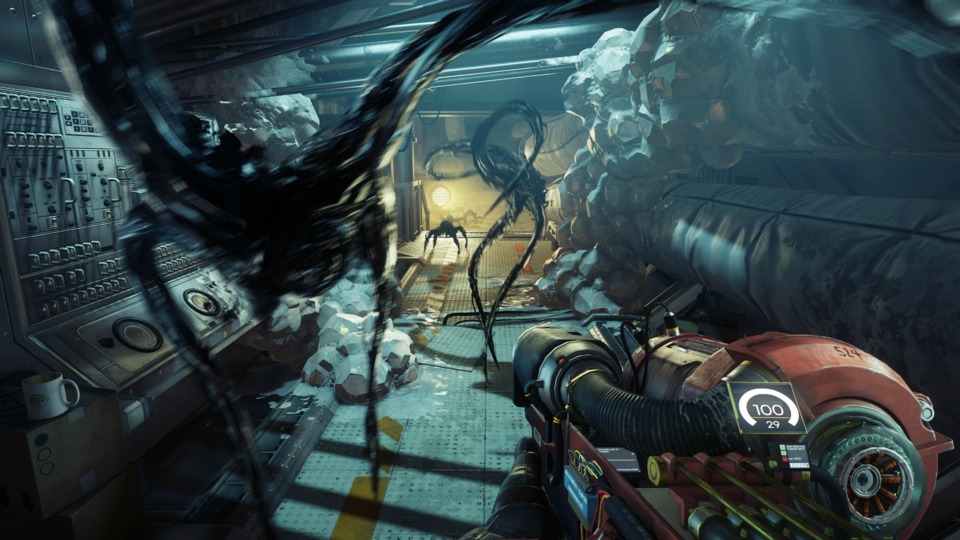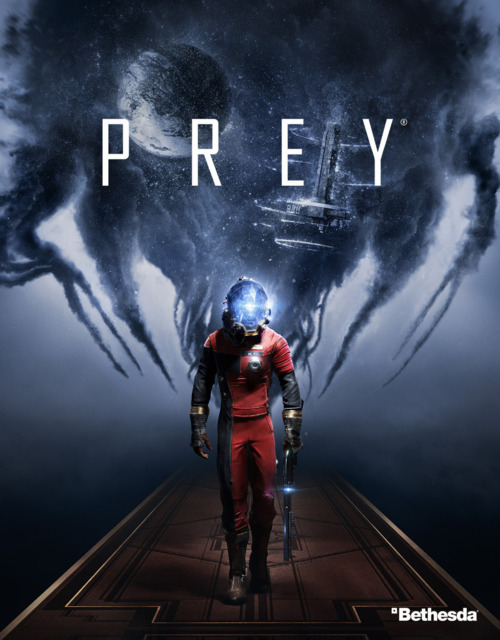Either a masterful craft or through a stroke of dumb luck, Prey is close to perfect.

System Played: PC (Xbox One, PlayStation 4)
Game Completed:2x (Hard 1x, Nightmare 1x)
Logged at review time: 41 hours
Experience: Played Dishonored 1 (approx 7 times) and 2 (once). Played BioShock (once) and Infinite (3 times).
Set on a space station dedicated to researching an alien species, the Typhon, Prey tasks the player with stopping the afore mentioned aliens after an outbreak. The entire space station is available for the player to explore, though some area’s are locked or blocked off, requiring certain items or skills to bypass. It is in this aspect among others that Prey shines, as it allows you to interrupt its perceived progression from an exploration standpoint and access area’s sooner, obtaining items within them that you would otherwise have gotten late in the game. In other instances it allows you to complete quests before they have become active in the story, and the game acknowledges this in its dialogue if you managed to do this. More often than not, you will find yourself doing this on a subsequent playthrough when you look at the play space differently since the knowledge you’ve gathered. As an example, one of the first area’s of the game has a second floor which is inaccessible until later in the game. You need a keycard, keycode or special skill to access it, all obtained after a few hours. However, the GLOO gun, a tool that shoots blobs of glue that harden on impact creating a small surface, can be used immediately to create a makeshift staircase and access the floor from the very first moments you step in it.

These types of moments often feel like you are breaking the game, but in a very good way. You feel unshackled. The play space is your sandbox to engage with how you see fit. Prey allows you to get into each area and tackle each problem multiple ways too. You can find keycards, hack computers and uncover keycodes, break objects in the environment to uncover airshafts to move through, use specific skills like repairing door controls and more. At some point relatively early in the game you will find a toy crossbow that shoots foam darts. Its description indicated you can use it to draw attention to a certain point or interact with objects. As soon as the latter part of the description sunk in with me, I broke the glass of an inaccessible area, then used it to shoot on the door controls unlocking the door from the outside allowing me access. Even though it was part of the description, I was perplexed this actually worked. I could skip a small section of the game if I wanted to.
Before skipping is any real concern, it took me roughly 25 hours to finish the game for the first time, in which I played on Hard difficulty. Quickly though, Prey became relatively easy. In hindsight, it also starts that way, but the game’s tutorials tell you every little thing you might want to know, except how to deal with tougher enemies. You start the game off with no powers and few weapons, yet it feels like the game puts tough enemies in your way very quickly. They soak up a lot of damage and seemingly kill you in two hits. Not to mention, these Phantoms as they are called, were quick too and had erratic movement. It took me a while to realize I needed to use the environment to kill them. Place fire extinguishers near them, shoot gas pipes burning them and so on. Once understood, it made the combat a lot of fun, but given the extensive nature of the game’s tutorials, it felt like it should have done a better job explaining this specific aspect of it.

Relatively quickly, the Typhon become easy to deal with. Prey has 6 skill trees, three of them being human skills and three of them are Typhon skills. The game allows you to find or even fabricate neuromods which are used to unlock skills and Typhon abilities. In the story this is explained as the station researched the Typhon and managed to isolate the neurons that make up their abilities. Once you move in the direction of a specific build, you become an expert in dispatching Typhon with ease, even the tougher versions. This might sound like a bad decision on paper as it more or less removes the challenge from the game that was there when you first started playing. But as I alluded to before, Prey is a carefully constructed beast of a sandbox that is designed to be broken. You can break the progression, you can break the quests, you can break the gameplay.
It felt like this approach to combat made complete sense in this template and if nothing else, I found it thoroughly enjoyable to become an unstoppable force. Even in my second playthrough on Nightmare, the game’s hardest difficulty, everything bowed to my will. In one of my playthroughs, I created a puppet master type of build where I could summon Typhon myself from corpses and could gain control of humans or machines for a minute or so. It let to hilarity where some of the strongest monsters in the game had to face multiple Typhon and an army of machines that did my bidding while I could just stand there and watch as it was destroyed. The possibilities of various builds are relatively deep, although certain paths taken allow you to fabricate an enormous amount of neuromods so you can unlock many, many skills. You will never obtain all the skills before the credits roll however, even if you take this path. Prey seems to start out as a horror game, but over time seems to become a more mechanics driven combat game. As I said before, I am sure this all sounds more like a drawback, but it creates the strongest aspect of the game.

The space station, called Talos I, is a persistent play space where the player can return to previous area’s after obtaining a keycard, new quest or skill to access other area’s of it. The game solves what I would call ‘the fast travel paradox’, where you want to just get to the place you need to be but it also breaks the immersion of the game world if you use it, in a very clever way. Instead of going to a map and selecting the place you want to go to, you can exit the space station at various points and propel yourself in your space suit across the exterior to get to another entry point on the station. While it does cost some time to do this, it does save you a tremendous amount of travel time if you were to merely backtrack. All the way it keeps the immersion active, or even better, it expands it. The space station feels like an actual place where you are because of this, rather than just a game space.
Because of the underlying framework of the game, Prey is highly replayable. You’ll want to approach it differently on your next run, try a different build, progress through the game differently, tackle quests differently. It suits itself very well to this.
The game also has a story that is oddly in harmony with the mechanics and core of the gameplay experience. You play as Morgan Yu, which can be both male or female upon starting the game, one of the two top scientists on the station. It is quickly revealed that you have been the subject of experiments with neuromods, losing your memory. However, as the game progresses, it tells you through emails, papers and audio logs that the Typhon are not bad creatures per se, they just lack the neurons that make them capable of having empathy. They do not kill because they want to, they just don’t know better. As you progress and find more audio logs and other forms of data, it is revealed that maybe the Typhon could be injected with human neuromods just like humans are injected with Typhon neuromods.

Without spoiling anything, this all concludes in what seems to be a story trope. Many will no doubt think it is an unsatisfying ending to the game because when a trope is detected, your first instinct is to jump to the conclusion that it is bad. However, upon closer examination of what it represents I found it to be a fantastic conclusion to the real story, the story that was in the backdrop: the narrative revolved around empathy. It makes your choices in the game matter on a much deeper level.
Prey is a fantastic game in many ways, but this is specifically the part that has my admiration: it manages to do what almost no game does. It married the way you choose to play the game to the narrative. It does it in a simple way, but it completely worked for me. Other games, even Arkane’s previous games such as Dishonored, made your choices matter in the sense that they assigned values to specific choices. If you did X you will receive bad karma. If you did Y you will receive good karma. Prey does none of this, at least it doesn’t really. It lets you experience your emotions yourself instead of forcing them upon you through karma meters. While your choices do matter in the end, none of that is subjected to you whilst playing. More importantly, the game doesn’t attempt to explain away why you made the choices you did. It does not pull a BioShock where it tells you that you weren’t in control as you know is nonsense. It tells you that you were in control and there is no other explanation for the choices you made than you, the player, decided to make them. It’s not because you are a bad or good person, you are and do what you are.

Many people may dismiss Prey’s story as a trope, but it is so much more than that. If you want to see it that way, it is the best trope of this type that I have ever experienced.
The game doesn’t look amazing in certain spots, though the Typhon do look great and appropriately erratic in their movement and appearance. Overall the visuals were surfacable for what it was trying to do. It makes up for some of the less stellar visuals with a good atmosphere. Even moreso because it allows you to interact with almost anything in the environment. Which, by the way, makes the game’s basic Typhon enemies that much more harrowing. Mimics as their name would suggest, mimic an object in the area and wait for you to come close or even pick it up, then attack you. This leads to tense exploration at times because they can run from you, go around the corner, then mimic another object. You’ll think ‘wait, how many chairs were here again? Yes, there is one too many… but which one is the extra one?’ I found this to be handled very well and before it gets old to approach the game this way, you receive upgrades that allow you to spot mimics in the environment up front.

I love just about everything about Prey. The gameplay, the play space, the quests, the way it allows you to break all of it with your wits, the narrative and the implications thereof. I am legitimately questioning whether or not all the aspects that make this game so great are actually intentional. Perhaps the gameplay was not balanced properly, but it managed to work out for the better. Perhaps the narrative was written in isolation from the gameplay and the two just happened to fit like two pieces of a puzzle by a stroke of dumb luck. I have even questioned myself extensively if I wasn’t being biased towards the game somehow. However, I have been very critical of Arkane in the past. They had very cool concepts in the Dishonored games but squandered them with forced karma mechanics and poor stealth mechanics. I don’t particularly like any type of mild horror game and while I love space, the ‘trapped on a space station’ claustrophobia was never my thing. Yet, Prey works for me regardless of all these facts. It has made me that much more interested in Arkane as a studio and I will be closely watching what they create next.
